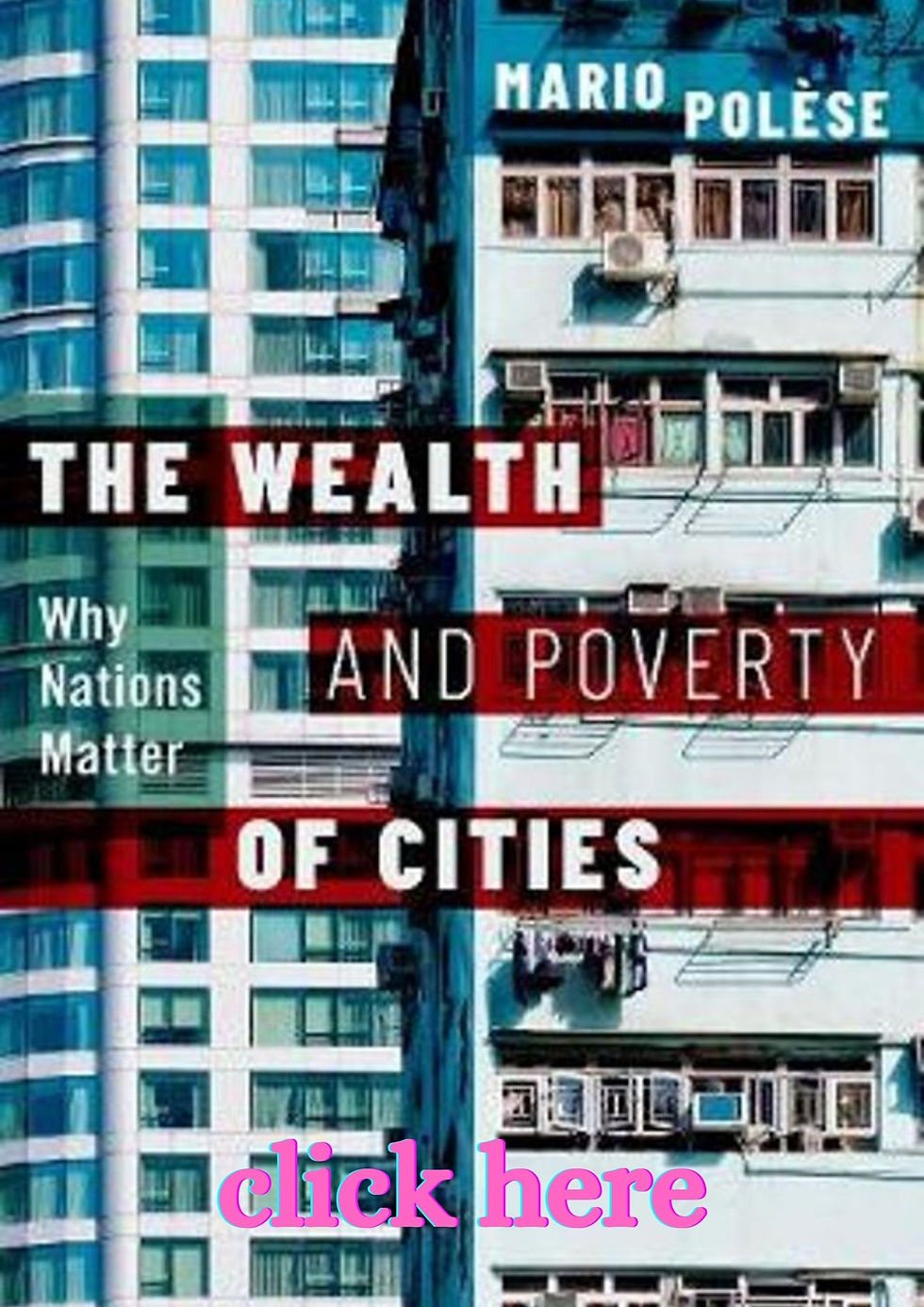The Wealth and Poverty of Cities: Why Nations Matter
- Lib SRC
- 4 ม.ค. 2565
- ยาว 1 นาที
Mario Polèse
Click here เปิดอ่าน Fulltext
Description
Much has been written about cities as engines of growth and prosperity. Cities have been centers of civilization since the beginning of history. A rich nation without cities is an impossibility. Yet, as this book explains, the central foundations of wealth and economic well-being are rooted in the attributes of nations and actions of national governments. If the nation does not work, nor will its cities. This book looks at the economy of cities through the lens of “The Ten Pillars of Urban Success,” covering a full range of policy concerns from top (i.e., sound macroeconomic management) to bottom (i.e., safe neighborhoods). Cities rich and poor around the world that are as different as New York, Vienna, Buenos Aires, and Port au Prince are examined. Urban success or failure almost always takes us back to the wise or unwise decisions of national and/or state governments. Urban success is about more than economics. Cities that have managed to produce livable urban environments for the majority of their citizens mirror the societies that spawned them. Similarly, cities that have failed are almost always signs of more deep-rooted failures. A socially cohesive city in a divided nation is an oxymoron. In the final chapter, the book proposes a critical look at America’s urban failures, its declining Rustbelt cities, and inner-city ghettos. Such failures should not have happened in the world’s richest nation. That they did is not only the sign of a deeper malaise, but also a warning to the wealthy urbanizing societies of tomorrow.




ความคิดเห็น